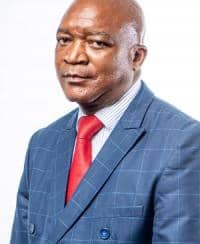
Can Foundational Learning Unlock the Continent’s Potential?
In the heart of Lusaka, on April 3, 2025, a movement was born—one that could reshape the future of Africa’s children. Zambia, in collaboration with the Ministry of Education, the African Union, and UNICEF, launched the “End Learning Poverty for All in Africa” (ELPAf) campaign, themed “Read, Write, Count: Foundation4Life.” This initiative confronts a stark reality: nearly 90% of 10-year-olds in the region cannot read a simple text or perform basic math, a crisis that threatens the continent’s socio-economic future. At PowerAfrika, we see this as more than a campaign—it’s a clarion call to reconstruct Africa mentally, spiritually, and economically, ensuring every child has the tools to thrive in a rapidly evolving world.
Core Story: Zambia’s Fight Against Learning Poverty
The ELPAf campaign, officially launched at the African Union Conference on Foundational Literacy and Numeracy in September 2024, is a continent-wide effort to mobilize resources, expertise, and political will to tackle Africa’s learning crisis. In Zambia, the launch was a significant moment, reflecting the country’s commitment to foundational learning. Hon. Douglas Syakalima, Zambia’s Minister of Education, speaking on behalf of President Hakainde Hichilema, emphasized the nation’s dedication to recovering and accelerating education, particularly after setbacks from the COVID-19 pandemic, the 2023/2024 cholera outbreak, and the 2024/2025 drought.
The campaign aligns with the Continental Education Strategy for Africa (CESA), aiming to expand cost-effective approaches to early childhood education and foundational learning. It will roll out in 25 African countries over the next 24 months, focusing on improving literacy and numeracy, strengthening educational institutions, and scaling impactful teaching practices like Zambia’s Catch-Up program. This program, based on the “Teaching at the Right Level” (TaRL) methodology, groups learners by ability rather than age, showing significant success in enhancing reading, writing, and counting skills. Saidou Madougou, Director of the African Union’s Department of Education, Science, Technology, and Innovation, called the learning crisis a broader developmental issue, noting that it prevents children from accessing their right to education and becoming active, economically productive citizens.
UNICEF’s Deputy Representative in Zambia, Dr. Nejmudin Bilal, highlighted the global recognition of foundational learning’s importance, stating that addressing learning poverty now lays the groundwork for a brighter future. The campaign calls for increased government investment in quality education, better teacher training, and the scaling of proven models like TaRL, which has already reached over 75,000 students in 485 Zambian primary schools since 2020. However, challenges remain—over 55% of Zambian schools lack electricity, limiting learning hours and access to digital tools, a gap that must be addressed to ensure equitable education.
PowerAfrika’s Take
At PowerAfrika, we applaud Zambia’s leadership in launching the ELPAf campaign, but we urge a critical examination of the systems perpetuating this crisis. The learning poverty crisis isn’t just a failure of education—it’s a legacy of systemic neglect, compounded by neo-colonial structures that prioritize foreign interests over African development. The 90% illiteracy rate among 10-year-olds is a stark reminder of how historical inequities continue to shape the present. Zambia’s Catch-Up program is a promising start, but scaling it to 1,800+ schools requires more than political will—it demands resources, accountability, and a rejection of external agendas that often tie aid to exploitative conditions.
To empower this movement, African youths and educators need practical tools. Young advocates can use AiReelGenerator and Renderlion to create impactful digital content, raising global awareness about the learning crisis. In rural schools, where power shortages are rampant, a Solar Charger can ensure students have light to study and access to digital learning platforms like the Learning Passport Zambia. Clean water, often scarce in drought-affected areas, can be secured with a Water Pump, supporting school attendance by reducing waterborne diseases. A Mosquito Repellent can protect children from malaria, a major barrier to consistent education. Finally, mental resilience is crucial for both students and teachers—MBL – Mental Bodybuilding Lab provides resources to build the psychological strength needed to overcome these challenges.
We also encourage African youths to join broader movements for systemic change, like our Rename Kotoka Airport Petition, which challenges neo-colonial legacies by honoring Africa’s true heroes and reclaiming our narrative.
A Little-Known Fact
Did you know? Zambia’s President Hakainde Hichilema was named a Champion of Foundational Learning at the ADEA Conference in October 2023, recognizing his commitment to educational reform. This honor underscores Zambia’s pivotal role in leading Africa toward a future where every child can read, write, and count by age 10.
Zambia’s launch of the ELPAf campaign is a bold step toward ending learning poverty, but the road ahead is long. At PowerAfrika, we believe that foundational learning is the cornerstone of Africa’s reconstruction—mentally, spiritually, and economically. By equipping our children with the skills to thrive, we can break the cycle of poverty and dependency, building a continent that leads on its own terms. The time to act is now—let’s ensure no child is left behind.
Call to Action
The fight to end learning poverty is a fight for Africa’s future. Join the movement to empower our children with the skills they deserve. Visit PowerAfrika.com to explore how we can rebuild Africa together—one story, one action at a time.
